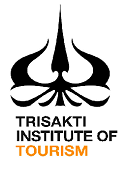Analysis of Tourist Travel Pattern for Youth Travel Segment in Ambon Island
Abstract
This study aimed to identify The Youth Travel Characteristic, The Youth Travel Pattern and The Model of Youth Travel Pattern Development in Ambon island. This study used descriptive methods approach. Mean and frequencies are for analyzing respondents’ characteristics. Travel Pattern was analyzed by using GIS software. SWOT analysis was used to develop the Travel Pattern Model. The respondents were 100 youth travels at the age between 15 years - 30 years who visited Ambon City. The research sampling technique was convenience sampling. The questionnaires were distributed between June 2017 – July 2017. This study found that youth travelers who visited Ambon Island was dominated by young local tourists, under 26 years old, well educated, searched for cultural and social values. The main information sources during the trip were from friends or internet and they tend to plan their travel independently or with their family and friends rather then using travel agencies. The main trip driver is outdoor with leisure activities on the beach. This study also found out that security was the most influencing factor in determining travel itinerary of youth traveler. During the trip in Ambon Island, youth traveler was formed five travel pattern. The most travel pattern was formed by youth traveler was a single point. The study developed four youth travel pattern models to incrase the number of youth traveler visiting Ambon Island









